The #1 Thing You Must Sacrifice to Lose Weight Successfully

Do you want to lose weight? You might have to change your mindset majorly, claims one expert. Gigi Wave is a weight loss coach and social media influencer who regularly shares her stay-fit tips and tricks with her followers. As part of her "Skinny Mindset Series: Hard Weight Loss Truths," she gets totally real about what it takes to get into shape. "Time for some hard weight loss truths from your favorite Auntie Gigi. Let's go," she says at the start of the clip. We also asked Body Network's Resident RDN, The Diet Diva, Tara Collingwood, to weigh in on her thoughts and suggestions. Read on to discover the key sacrifice you must make to achieve your weight loss goals.
You Have to Be Willing to Be "Uncomfortable"
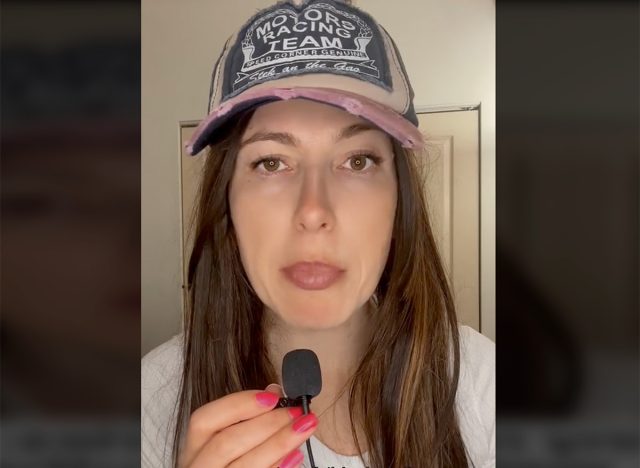
"If you're not willing to be even a bit uncomfortable for the next few months, you're not serious about weight loss, you might as well be enjoying food and eat as much as you want of it right now," Wave says.
She Says to Analyze What Hasn't Worked
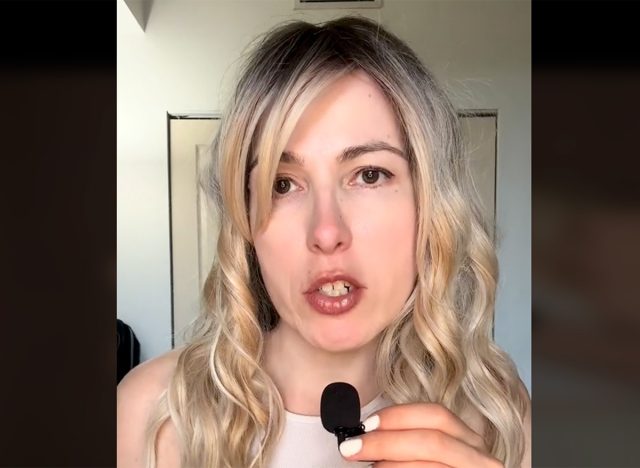
Wave says to think about the past six months. "Let's say you've been on a diet but not losing weight. Chances are you've given up a lot of food you like, you're always uncomfortable, getting hangry at work, and eating alone in the evenings. Weekends it all goes to crap because the boyfriend's like, 'Let's do Uber Eats, and it's Susie's Bachelorette and all these excuses why you can't be in a calorie deficit."
RELATED: 2 Trader Joe's Products That Helped Me Lose 365 Pounds at 41
If You Aren't in the "Headspace" to Lose Weight, Don't Deprive Yourself

"If you're not in the headspace to lose weight, even if it's the next six months to a year, then enjoy the food. You should be getting your enjoyment from somewhere. So if it's not like losing the weight and the enjoyment that comes from that, get your enjoyment from eating all the tastes whenever you want," Wave continues.
Taking Weekends Off From Dieting Doesn't Work
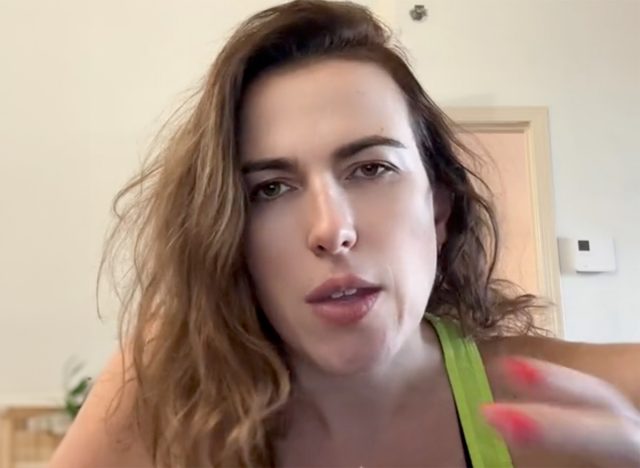
"You know, because I find, and it's been said before, a lot of people are good Monday to Friday, the weekend comes, they really relax and don't eat one cheat meal. I mean the whole weekend's cheaty. So their weekly totals, they're still in their maintenance calories and the weight is not coming off," Wave says.
You Have to Be Honest with Yourself

"So you have to be honest with yourself. Look at how you've been. If you've been so uncomfortable dieting, there's nothing worse than feeling that you're dieting and the weight isn't coming off. You've thrown the towel, and you're upset," she said.
Discomfort Is Key
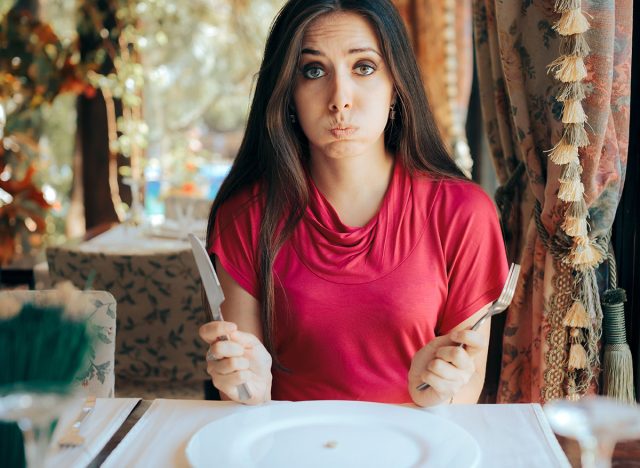
Wave says that it doesn't matter what weight loss regime plan you're doing. You're going to be a bit uncomfortable. Why? "Fasting works for a lot of people because they feel like, 'Oh God, I have a six-hour window, so it's uncomfortable to fast. When I can eat, I can eat, and it's good, and the weight comes off,' and they like it. For some people, it's easier just to cut out a food group. "I'm going keto, not counting calories, leave me alone,' and the weight comes off no matter what. There's some discomfort in all of these," she says.
You Need to Be Willing to Have Discomfort

The bottom line? "If you're not willing to have any discomfort, the weight's just not gonna come off. I know this is where the volume eating crew will come in and say, 'No. But if you have a super big salad and you cram it with protein and fiber, then you're still gonna be full,'" Wave continues.
It Won't Happen Unless You Are Ready

Wave continues, "Shoving salad all day and never eating Reese's pieces is uncomfortable too. I'm not saying you're gonna be miserable, But again, you're not willing to have some discomfort, you're not ready to buckle down and do what it takes for the next few months, it's most likely not gonna happen."
RELATED: Drop 40 Pounds in 6 Months with These 7 Simple Adjustments
Body Network's Expert Agrees That You Need to Be Motivated

"Anything hard takes some discipline, and losing weight is one of the hardest lifestyle habits to modify," agrees Body Network's Resident RDN, Tara Collingwood, MS, RDN, CSSD, LD/N, ACSM-CPT, a Board Certified Sports Dietitian, and co-author of the Flat Belly Cookbook for Dummies. "I coach my clients to think about their motivations for eating to make the changes in their lifestyle that will require them to lose the weight they say they want to lose."
…And Willing to Make "Hard Choices"
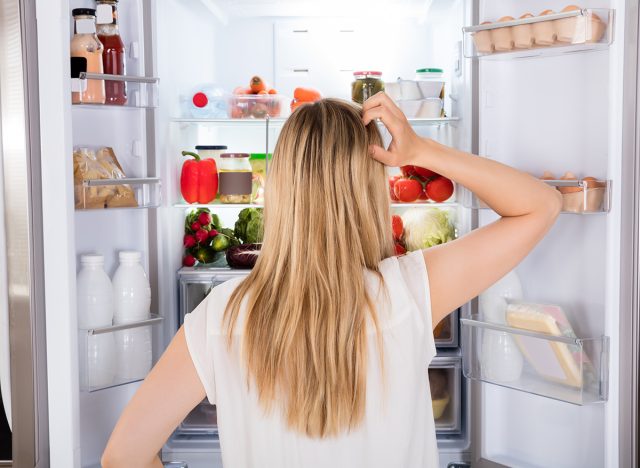
"When you have a strong reason for making the hard choices, it becomes easier to keep yourself on track," says Collingwood. "With discomfort comes growth and results."
💪🔥Body Booster: If you aren't ready to make major changes and experience some discomfort, you shouldn't bother dieting. Losing weight is going to feel uncomfortable, no matter what!
@theggwave Skinny mindset series: get comfortable with some discomfort. #weightloss #weightlosstransformation #diets #dietstory #howtoloseweight #mindfuleating ♬ original sound – TheGGwave




